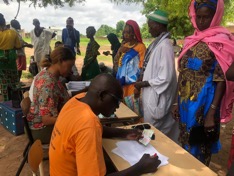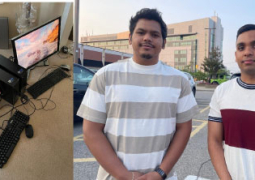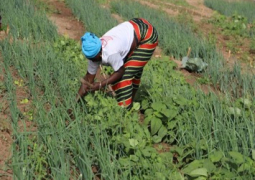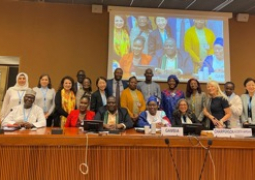
In an interview with Isatou Jallow, a beneficiary and resident of Bonyadu, she said the money has had a very big impact on her life.
"When I first received my cash, I realised that my husband is underprivileged and things were hard at our family level. I took the first and previous cash transfers and invested them in a donkey. I bought the donkey in order to support my husband in farming because it used to be hard for us to get assistance on our farm."
She testified that the Nafa Programme has solved so many challenges and given them comfort in pursuance to their dream harvest.
"The donkey can also be used for the transportation of our services. I thank World Bank and the Government of The Gambia because this support is really helping underprivileged families and putting a continuous smile on our faces."
Mariama Ceesay, a beneficiary from Sibanor explained that the Nafa Programme has brought so many benefits to her family, saying they are now able to get something for food and even buy some clothes.
"I also bought a mare and is expected to deliver soon. That would bring another source of income for me and my family. We have nothing to complain about but to thank donors and implementers as well as urge them to continue supporting us."
Amie Badjie, a native of Jarco village and a beneficiary stated that she was able to buy a goat which she expects to generate income for her family. "This cash has elevated our living conditions to another level because we can now have money for food."
Tida Sanyang, also a beneficiary and resident of Bajilo stressed the importance of the programme, saying it has brought some changes to their lives by changing the feeding pattern from one meal to regular. "I now have a mini shop where I sell basic food commodities and this is really helping me to feed my family."
Mustapha Ngum, Community Development Assistant for West Coast Region (WCR) hailed the impact of the project, saying its significance in terms of changing the lives and livelihood of vulnerable rural households is huge.
He added that the project came during Covid-19 when many households were suffering in terms of getting food on their tables but that this has now changed.
"Some of the beneficiaries have started their own businesses which is another income generating source for households. This clearly indicates that the project is significant and already has an impact in changing the lives of vulnerable people."





